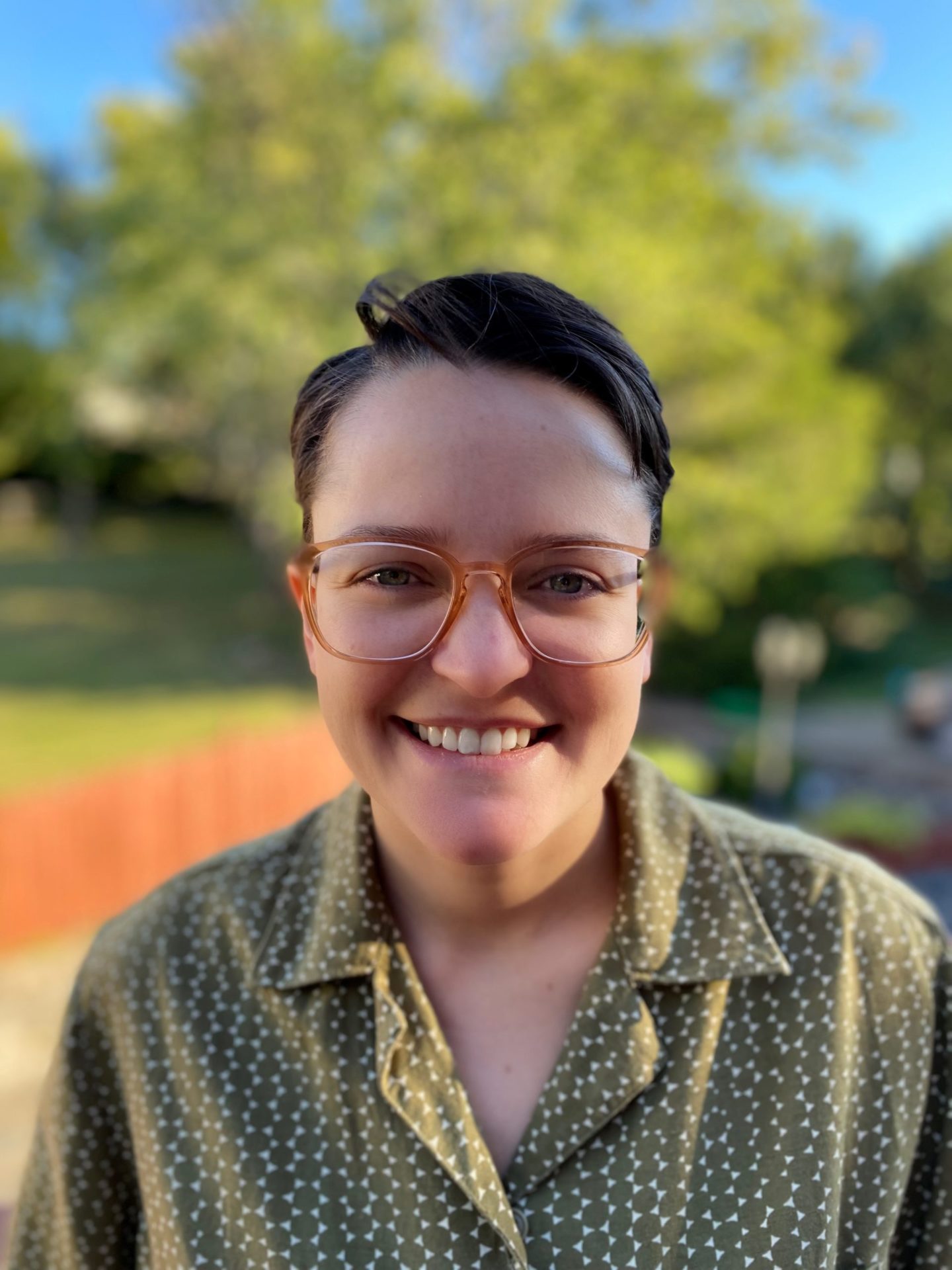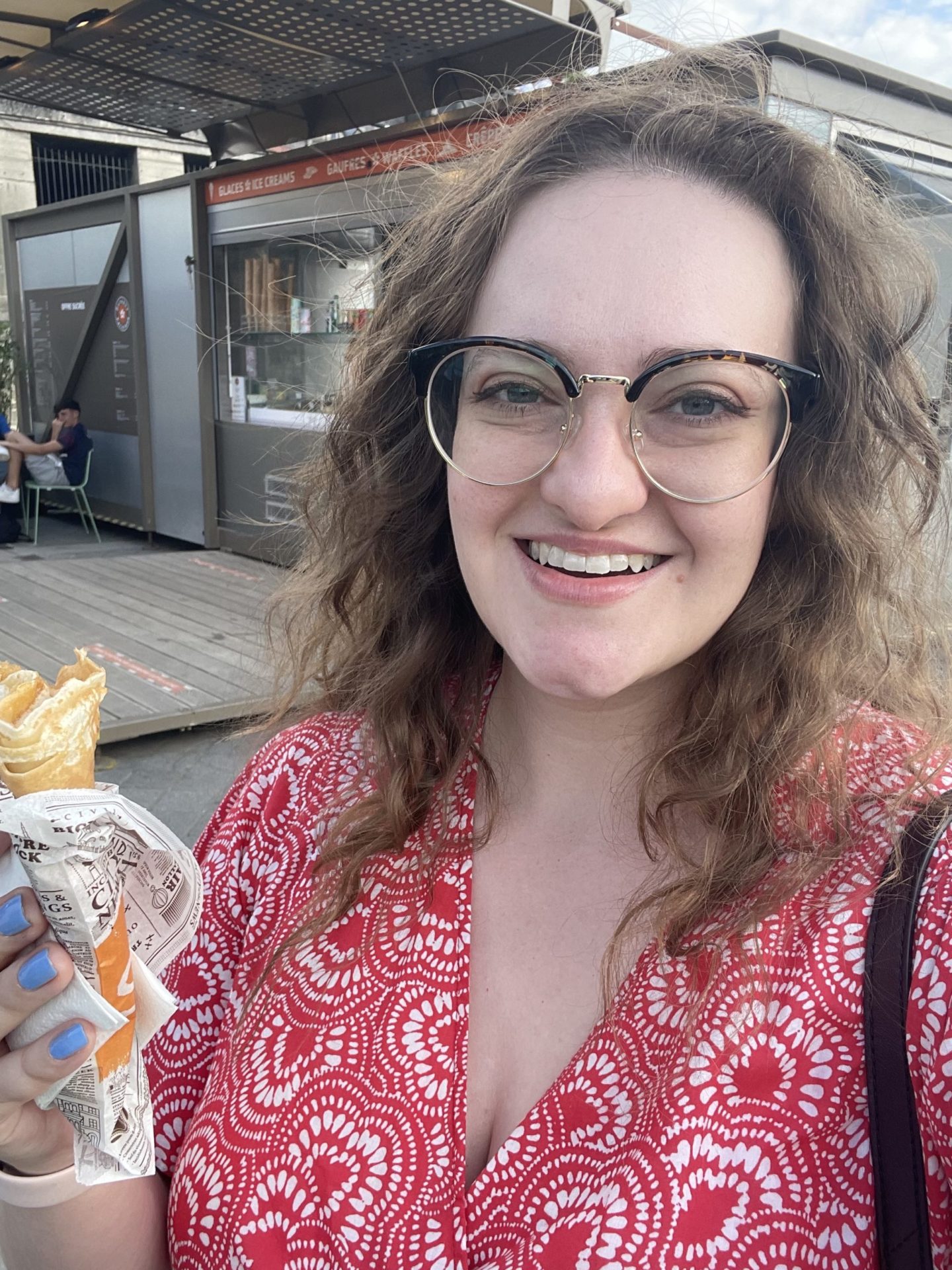Cinema in Nashville:
The 2024 International Black Film Festival
The International Black Film Festival (IBFF) held its 19th annual festival this October 2nd-6th. The IBFF is the only African-American established and inspired film festival in the state of Tennessee. Its mission is to “encourage culturally accurate depictions of all people in film with special emphasis on providing a forum of access for underserved and unheard voices as well as to showcase the artistically rich creativity and diversity found around the globe.”
This year’s films certainly fulfilled their mission! The 2024 festival included feature length narrative films and documentaries as well as narrative and documentary shorts. Besides the films, industry panels discussed everything from AI to finance, and networking mixers as well as the awards ceremony made for a full five days. Our journalists were only able to cover a small taste of the many offerings: A Documentary Feature (The Tennessee 11), one collection of Narrative Shorts, and one Narrative Feature (The 6th).
The Tennessee 11 (Review by Y Kendall)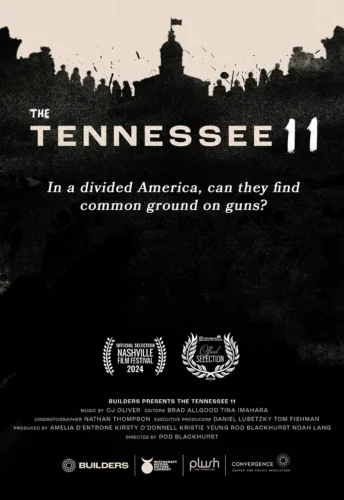
It started with a 911 call. Panic in the voice of a woman reporting a horror. The horror—nearly predictable in twenty-first century America—a school shooting. But this time was different.
The 19th annual International Black Film Festival opened to an undeservedly sparse audience of a few dozen viewers. But the power of the story riveted every witness to this screening. The Tennessee 11, directed by Rod Blackhurst, was supported by Builders Movement, Citizens Solutions, and Convergence: Center for Policy Resolution, non-profit organizations dedicated to building unity in communities. This film originally premiered on September 23, at the Oscar-qualifying 2024 Nashville Film Festival.
In accordance with its advertised tagline, “In a divided America, can they find common ground on guns?” the film tells the story of a community effort bringing together eleven Tennesseans from different walks of life to deal with the issue of gun violence in our state. This came in the wake of the shooting at Covenant School in Nashville, a predominantly white Christian school in the upper-middle class Green Hills neighborhood. The shooter was a white former student who identifies as male.
The Tennessee 11, as they’re now called, comprises one middle school administrator, a high school teacher, a college literature professor, a combat vet who serves as a mental health counselor, a marriage/family therapist, a former State Trooper, a college student, a self-proclaimed “gun advocate,” a community activist who was formerly a gang member, and two pastors, one black and one white. For three days, conflict resolution specialists guided the group to eight consensus proposals that were placed on a website garnering over 30,000 community comments and majority agreement on five of the proposals.
Periodically, words appeared on a textured linen-appearing screen, alternating with scenes of parents and police outside Covenant, scenes of protests within and outside the Tennessee Capitol, the narrative of the eleven citizens willing to work toward change, and screens of cloudy black, white, and gray spills that seemed an apt visual metaphor for the varied points of view.
It would have been quite effective as a test of the group’s effectiveness to have at least a summary of all eight proposals on one of the text screens, because one of the proposals was actually passed into law in April 2024. HB2882/SB2923 is, unsurprisingly, one of the weakest of the proposals, requiring “local education agencies and public charter schools to provide students with age- and grade-appropriate instruction on firearm safety.”
Given the initial intransigence of the “Second Amendment” purists, it’s amazing any agreement was reached. For gun instructor Tim Carroll, even a mention of the term “gun safety” triggers a defensive reaction. Similarly, Jay Zimmerman, the vet counselor, held that owning guns is a “god-given” Constitutional right. Meanwhile Professor Brandi Kellett declared that “the right to carry a gun without a check or a permit infringes on my right to be safe.” Notably, all the pastors and the therapists are male and pro-gun-ownership. One is even an NRA member. But, Ron Johnson, Nashville Community Safety coordinator, whose mother died as collateral gun violence, spoke for all by sagely stating: “There’s nobody who lives in a community that don’t wanna be safe.”
The film’s director and cinematographer effectively used both closeups and panning over the entire group, spaced with poignant vignettes from individual life experiences: college student Jaila Hampton putting flowers for a memorial honoring her dear friend, a young black man dead as collateral damage in a senseless gun incident in Memphis, and vet Jay Zimmerman walking in the woods as he fondly remembers hunting with his grandpa in Elizabethton.
Mark Proctor, a white male with 24 years of Highway Patrol officer experience may have been the glue holding the prospect of success together. The pro-gun faction couldn’t dismiss his law enforcement credentials and his sincerity allowed the other side to put aside their concerns about over-policing and lax public safety to believe in his clear support for sensible legislation.
After the film, there was a brief discussion involving four of the eleven: Kellett, the lit professor who was removed from the Capitol for holding a sign supporting increased gun legislation; Johnson, who coordinates community safety programs; Proctor, the former State Trooper, and William Green, pastor and board member for the IBFF. The discussion was led by Leon Ford, a young wheelchair-bound victim of gun violence resulting from a traffic stop by a member of the Pittsburgh Police Department. Mr Ford, shot five times in a case of mistaken identity, is a mental health ambassador, recognized with President Obama’s 2017 Volunteer Service Award and named in Forbes 2023 “30 under 30.” Notably, none of the strongest “pro-gun advocates” attended the discussion.
Because of content gaps in the film, viewers are left wondering what was left on the cutting-room floor. For example, the film made no reference to the “well-regulated” text of the US Constitution’s oft-mentioned Second Amendment. Post-discussion, I was able to ask Pastor Green if that had ever come up. It had not. The film also made no mention of proper storage of firearms or any parental responsibility if underaged children get their hands on legally owned firearms and committed crimes with them, but Pastor Green assured me that that had been part of the discussion.
Ultimately, The Tennessee 11 tactfully shows the benefit of civil conversations in a free society. Yet Professor Kellett’s words remain true: current Tennessee gun policies are disproportionately weighted toward gun proponents and this is unlikely to change.
Short Suite 2 (Review by Bethany Morgan)
Superman Doesn’t Steal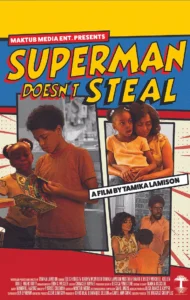
This short is a slice of life set in the 1970’s in Atlanta during the Atlanta Child Murders. It is based on the writer’s (Tamika Lamison’s) own childhood. It opens with two children discussing superheroes and villains. The older brother, Jackson, explains to his sister, Harriet, that Robin Hood could be viewed as a villain because he stole, but he was actually a hero because he gave to the poor. As the short goes on we see that some people we view as heroes, like police officers, can be villains. Conversely, we see that a father who makes a choice to discipline his son, out of fear rather than anger, is not the villain that he might have appeared to the son in that moment, but a man doing his best to protect his family: a hero. Jordyn McIntosh did a stellar job as Harriet. The story is told from her viewpoint, and I found myself grateful for her curiosity because we see private moments when she peeks into rooms or through windows. Ellis Hobbs IV is wonderful as her older brother: slightly annoyed with his sister at times, and thinking he knows best. The most poignant moment of the film is the mom and dad sitting on the bed after everything is over, crying together. Seeing the vulnerability of the father who has to be strong for his family is beautiful and Tamika Lamison and Mustafa Shakir do a really lovely job. This is a captivating short that you should take the time to watch. Don’t skip the credits; they’re set to Shakir’s song “Black Super Hero:” a throwback to the big beats of the 90’s.
Diamond Mines: The Public Art of Ronald Llewellyn Jones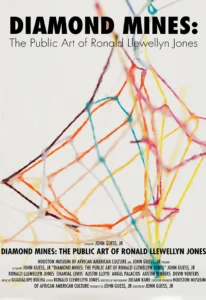
This documentary showcases the Houston Museum of African American Culture’s choice to commission Ronald Llewellyn Jones to create public art that would continue its efforts to create a sense of empowerment and pride in Houston neighborhoods characterized by segregation and high levels of poverty. John Guess Jr, the director of the film and the CEO of the Houston Museum of African American Culture, reveals an anecdote: he had told Jones that they wouldn’t be seeking permits for the art, only for Jones to reply that he wouldn’t work with permits anyways. He created a beautiful piece made of string, connected to trees and concrete blocks, that resembles a web with geometric shapes, similar to the facets of a diamond. Jones explains how the neighborhood where he placed his work is slowly changing due to gentrification. They come in like the area is a diamond mine, he says, but they view the land as the diamonds, when it’s actually the people that are diamonds. Members of the community were interviewed and spoke about what it meant to them to see such a unique and grand work of art in the middle of their neighborhood. Another clip shows Jones picking up trash in the area. He explains how change can start with just one person and one action: someone will see him pick up trash and decide to do it as well. John Guess Jr points out that Jones’ work is never vandalized, it’s too precious to the community. This was my favorite of the four shorts. Jones’ ability to turn hardships into blessings, and areas of poverty into areas of beauty was truly amazing to behold.
Ghostwriter…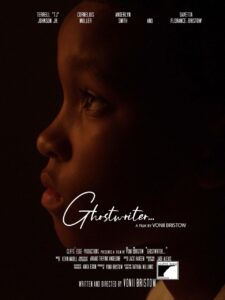
Written, directed, and starring Vonii Bristow, this narrative short tells an important story: what happens to the families of a person that has been killed by police brutality. We have heard the stories of Breonna Taylor, Trayvon Martin, George Floyd and many others. Perhaps we haven’t always considered how these deaths have affected family members or if it’s possible to move on from the grief of a loved one being murdered by someone in a position of power. The short opens with a young boy, Simi, (Terrell Johnson Jr.) asleep. His mother (Rachelle Neal) comes in to read the note that he has left for her on his bedside table. Although she takes the letter with her, the boy wakes up to see it still sitting on the nightstand. We piece together that she has passed away but it isn’t clear until the end when the boy, now grown up, reveals the memory of a policeman pulling the family over and shooting her off camera. There is no clear resolution to the emotional toll that this has taken on the boy and his relationship with his father (Cornelius Muller). While I really loved the idea for this film, some choices didn’t make sense. The person to trigger him (by using the nickname his mother always used for him) is his old therapist, who apparently is dating his father. This is an unnecessary complication. The ending, although depressing, is a good choice, reminding the audience that there is no end to grief and real life doesn’t always have a happy ending.
The Nights of Verona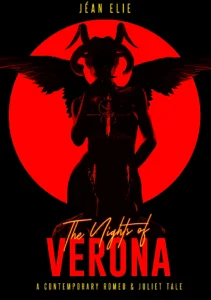
This narrative short is a contemporary prequel to Romeo and Juliet that follows Mercutio (Jean Elie). He must broker an alliance between his family and the Capulets in order to quell the power of the Montagues, while being terrorized by Queen Mab (Amber Azadi) with visions of his imminent death. The film goes back and forth in time and includes nightmarish hallucinations. It seemed inspired by Baz Luhrmann’s 1996 film Romeo + Juliet with bright colors and an almost frantic pace, although I would describe it as much more gritty and less campy. I admire the boldness of adding to Shakespeare’s play; however, I found the film difficult to follow and lacking substance. Art should have a message of some sort to convey and maybe I need to rewatch this short, because I didn’t get anything out of it, which is frustrating because this is the one I was most looking forward to watching. There are some things that I enjoyed: the costuming by Mieshia Petersen is flawless, the creepy Queen Mab adds the perfect amount of horror, and the all black cast is such a refreshing look at Shakespeare whose plays would have been performed by an all white, male cast when originally produced.
The 6th (Review by G. E. Tipton)
The 6th is a Narrative Feature written, directed, and starred in by local MTSU alum Ricky Burchell. While the IBFF is a welcoming space for first-time filmmakers, Ricky Burchell is hardly new to the scene: his IMDB lists 14 director credits and seven of his films are currently available on Prime Video.
The title of the film refers to the 6th Amendment of the Constitution. For those of you who (like me) can never keep the numbered amendments straight, this is the amendment providing rights to citizens undergoing criminal trial, such as the right to a speedy and public trial, a fair jury, legal representation, the right to know charges, and so on.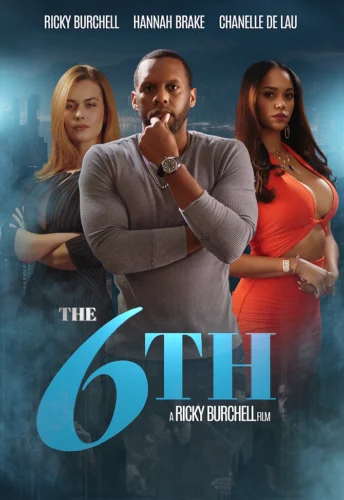
The urban drama starts viscerally: nighttime in an alley, one man beats a prone man with a metal pipe. Then we see what happened prior to the brutal event. The man who had been committing the violent act is prominent Atlanta attorney Marcus A. Coles (Burchell) just won a major victory and chooses to take on what at first seems like a simple defense case. Asked by his friend, rapper-producer Feylon X (Lil’ Flip), to defend a cop who claims he’s been framed for stealing evidence, what seemed like a straightforward case begins to spiral out of control: Feylon X is murdered and Coles is called in as a possible suspect. We see the slow corruption of Coles’ already compromised character as he has an affair with a fellow lawyer, attempts to investigate the murder, clashes with police, defends his client, and tries to protect his friends. The 6th’s message is that you are who you surround yourself with. Constantly defending and befriending criminals, Coles admits himself to having changed his ideals, from becoming a lawyer because he believed in truth and justice, to deciding that it’s actually all about winning. While not rated by the Motion Picture Association of America, I’d give this film an unofficial R-rating due to sexual content, profanity, and violence.
The characters are varied: a chauffeur/assistant, reporter, computer hacker, rappers, music moguls, nightclub owners, thugs, and clean and dirty cops. The cast is diverse and avoids any typecasting. Several characters speak Spanish as a first language and my only regret is that a brief scene includes their comic dialog in Spanish but doesn’t provide English subtitles. While not what I’d call an action movie, The 6th does have action scenes: car chases, gun shots, explosions, and murder. Much of the drama is conveyed through conversation and multiple story threads are explored and developed. I appreciated the sense of humor that appeared throughout the film, providing relief to the constantly mounting tension. In one such moment, Coles and his assistant come to their colleague computer hacker for help, and she welcomes them into her office while only wearing a towel. They’re clearly uncomfortable but she’s unfazed and asks them, “Don’t you shower?”
The plot was occasionally confusing, switching from event to event, and leaving some of the character’s actions and motives unclear. Some of the unevenness in the film was explained in the Q&A after the showing, when Burchell said The 6th was originally conceived as a ten part series, but conversations with distributors convinced him to adapt the story to a feature length film. He hopes to complete the story with a sequel, possibly in an episodic series format, which I think would suit his writing.
All the women are talented at their jobs and make sense. This film passes the Bechdel test: two women have a conversation with each other that’s not about a man. The only portion that cracked me up and felt a little man-writing-women was that no matter how late or unexpectedly Coles shows up at their houses, the women (with the exception of the computer hacker) are always wearing lingerie with full makeup and carefully styled hair.
While set in Atlanta, The 6th was shot in the Murfreesboro area. At the Q&A Burchell stated that the film was shot on a low budget, and the cast backed him up on this, calling the effort a family endeavor and cheerfully mentioning how they all played many roles behind the scenes: acting, carrying sandbags, changing lights and working long days. While this budget constraint is occasionally noticeable during some special effects (explosions and some gunfire), I think their hard work and good management of the budget is successful. The costumes match each character and the sets are good, with a variety of locations and plenty of extras.
Some of the shots, especially of car chases, are of impressive quality. To suit my personal taste, shaky-cam is almost completely avoided, except for a few brief moments where it fits the nature of the scene.
The casting is good, each actor enjoying their role and fitting the requirements of their character. As of publication, the full cast and crew credits have not been released, so I cannot give credit to everyone who deserves it. I can say that I enjoyed the haughty-eyed attitude of Hannah Brake, and Chanelle de Lau’s seeming straightforwardness. This film engaged its audience at the IBFF and I hope the cast and crew will continue to make films, develop the local film industry, and create more entertainment for us Tennesseans!
To learn more about the IBFF or to join their mailing list so you don’t miss the festival next year, see International Black Film Festival. Each year we work to expand our coverage of Nashville’s film festivals, and we look forward to covering and celebrating their 20th annual season next year!

